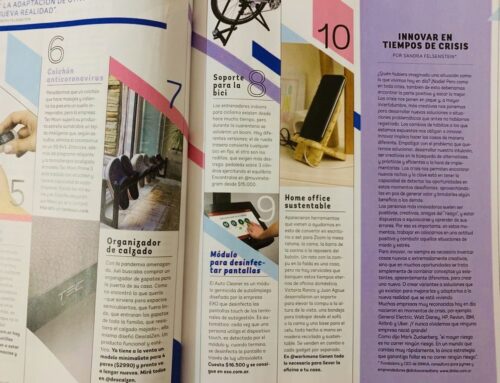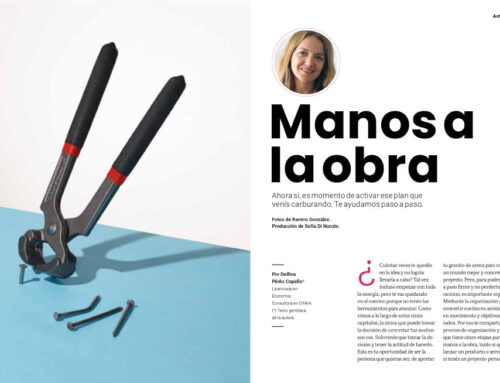The entrepreneur's time has a very high opportunity cost, and it is essential that he does not abandon his dedication to the elaboration of strategies to perform only operational tasks.
Escribe Sandra Felsenstein
In times of crisis it is natural for SMEs to retraigate their expenses and investments and implement savings measures. On the other hand, many times it happens that the need leads companies to the search for greater efficiency, which could be the positive aspect of these situations.
An action that usually detonates this type of period is the stagnation in the hiring of personnel and, often, including the dismissal of collaborators. In several cases, SME owners evaluate "I can do this function" or "I can start taking more tasks of the company."
You have to be very careful with this issue and not forget that the entrepreneur's time is worth a lot; It has a high opportunity cost and it is essential that it does not abandon its dedication to the elaboration of the company's strategies to perform operational tasks.
Lower costs?
When decreasing costs it is essential to try to simplify the processes: make them simpler and simpler.
Not only to reduce the usual expenses of the company but also the “superfluous” that do not generate added value to the final product, increasing its cost and, as a consequence, its price.
This means minimizing internal bureaucratic processes that, ultimately, use time and resources that do not translate into advantages or benefits for the consumer.
It is time to optimize existing resources and processes, and identify products or services with better results.
While this vision should always be present, it is in times when consumption is in recoil where it must effectively come true.
Because? Today the consumer makes a much deeper evaluation of what to invest his money and at what price.
The ideal would be to implement this cost reduction through the analysis and optimization of processes, but the truth is that, in many cases (in despair) processes are shortened - or part of them - that actually generate value in the product or service that is marketed.
In this way, what we achieve is a deterioration of quality.
Elements that weigh, but do not squeeze
In relation to the issue, two opposing situations are generated: in some cases the lack of liquidity, market uncertainty and sales decline generates the decision to reduce the stock of many companies.
In others and on the contrary, inflation generates an increase in inventory due to the constant increase in its replacement costs. This depends largely on the financial capacity of the company, the characteristic of the products (perishable, seasonal, etc.) and the storage capacity. It should always be remembered that the stock translates into immobilized capital, occupied space, manipulation costs and rupture risks, which and for each case the advantages and disadvantages of increasing or decreasing the inventory must be analyzed.
Do we stop communicating?
On the other hand, there is contraction in investment in advertising and marketing of SMEs. Today, we can locate many tools that allow managing the relationship with customers without the need to invest too much, so from Dinkka we always recommend that the important thing is to place economic resources more efficiently, without abandoning commercial management, which is precisely fundamental at times when consumption retracts.
The implementation and use of social networks, mailing, direct marketing, surveys, etc., are very effective and economic tools to establish a fluid contact between companies and their customers.
In any case, the clear identification of the client profile is essential and then executed more effective actions.
At the same time and in relation to commercial management, it is very useful to have boards (simple) for the monitoring of customer satisfaction, rotation of them and monthly contacts.
In this sense, the importance of having a full knowledge of our client's experience is highlighted by consuming our products or services.
In a retracted market, where there are many players competing for "winning" the sales that are generated, it is essential to offer a high added value, not only in the product that is marketed, but also through all the customer's purchase experience.
Many times with "little" we manage to stand out in the market, leveraging really beneficial results.
Cold mind
Despair for wanting to sell more is also a characteristic situation of crisis times and market retraction, although it is not a concept directly associated with an adjustment. It is usual to observe entrepreneurs trying to increase sales desperately, as well as to counteract the decrease in the results.
The truth is that the focus should be put in the optimization of companies, with special attention in leverage the segment of products and customers that represent the highest performance.
Sell better and not “just” more
We must be able to identify, of all the business units or products that are offered, which ones that generate the best results and put the energy there.
That is, to alocate the greatest amount of resources to leverage the most profitable.
The same happens when identifying the types of customers: there is always a group to which special attention should be dedicated.
On the other hand, it should be noted that for SMEs there are programs for support for business restructuring, subsidies and loans to competitive rates, which can be accessed not only to face the effects of difficult times but also applying this capital injection to reorganize the company, redefine objectives and implement strategies and tools that point to greater efficiency.
This can be a good investment to leverage future results of the veterinary company, although in reimbursable cases the subsequent repayment capacity should also be evaluated very well before facing the commitment.
In conclusion, crises only become more efficient, more creative, more innovative. Today, in such a competitive market, this is essential not only to overcome the juncture but also to grow, develop and stand out as entrepreneurs.
Innovation is a process, not an isolated act, which consists of doing things differently to adapt to new market demands.
It does not necessarily mean having to invent a new product, but perhaps how to add value that you already have.
Reinventing constantly means a challenge, but that today should be part of the culture of each company.
As the American motivator Anthony Robbins says, economic problems are not solved with money, but with imagination.








